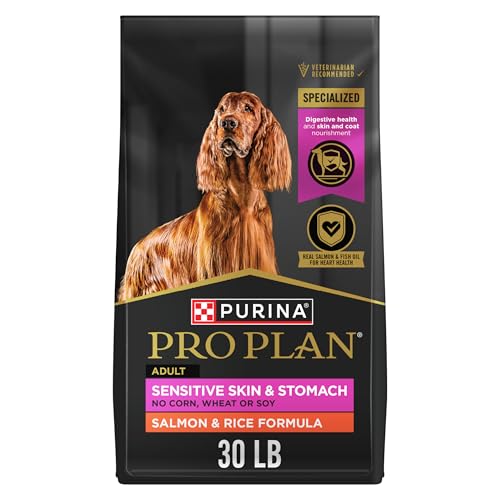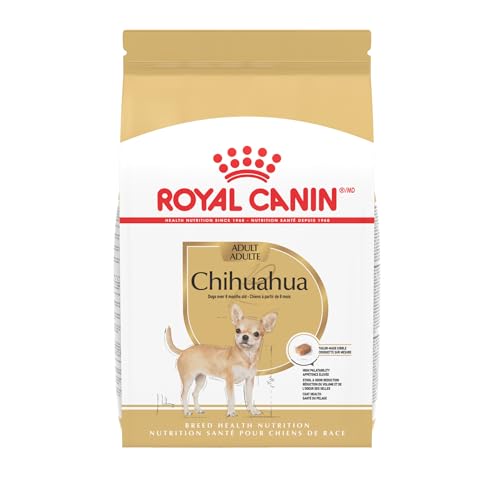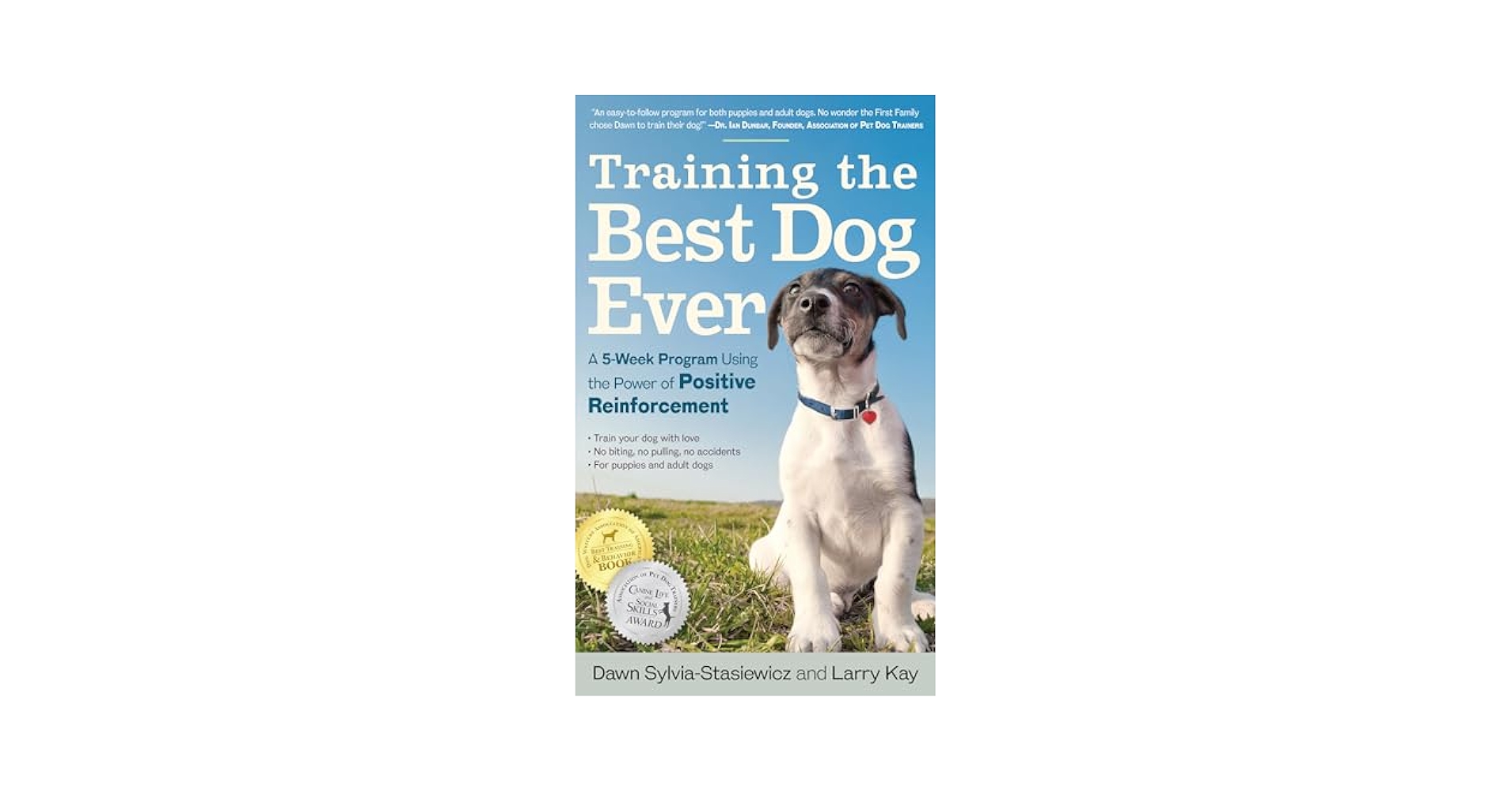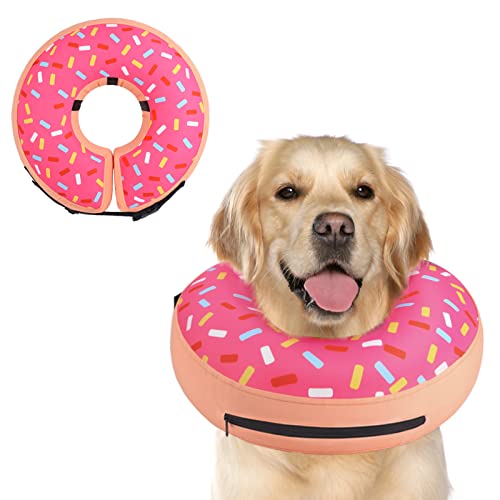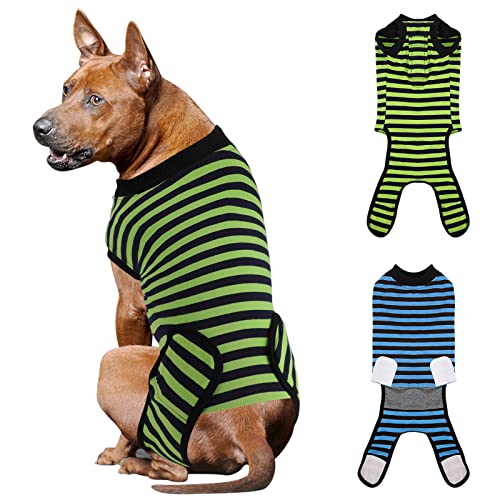Have you ever just finished giving your dog a bath, only to notice an unpleasant smell lingering afterward? It’s frustrating when you expect your furry friend to come out fresh and clean, but instead, the odor sticks around or even seems stronger.
You might be wondering, “Why does my dog smell after a bath? ” Understanding the reasons behind this can help you keep your pet smelling great and feeling comfortable. Keep reading, because the answer might surprise you—and it could change the way you care for your dog’s hygiene forever.

Credit: www.facebook.com
Wet Dog Odor
Have you ever noticed that your dog smells stronger right after a bath? That peculiar wet dog odor can be surprising, especially when you expect a fresh, clean scent. This smell isn’t just a quirk—it actually has scientific reasons behind it.
What Causes Wet Dog Odor?
The main culprit is bacteria and yeast living on your dog’s skin and fur. When your dog gets wet, these microorganisms release compounds that create that distinct smell. It’s a natural reaction, not a sign your dog is dirty.
Think about the last time you took your dog for a swim or a bath. The water wakes up these microbes and helps spread their smell through the fur. That’s why the odor becomes stronger when your dog is damp.
Why Does The Smell Linger After Drying?
You might wonder why the smell sticks around even after your dog dries off. The answer lies in the oils and sweat on your dog’s skin. Water can mix with these natural oils, and when they evaporate, they leave behind a scent.
Also, if your dog isn’t dried thoroughly, moisture stays trapped in the fur. This creates a perfect environment for bacteria to thrive and keeps the odor noticeable. Drying your dog properly can make a big difference.
How To Reduce Wet Dog Odor
- Use a dog-specific shampoo:These shampoos are designed to reduce bacteria and yeast without harming your dog’s skin.
- Dry your dog completely:Use a towel and, if possible, a pet-safe blow dryer on a low setting to get rid of hidden moisture.
- Brush regularly:Brushing helps remove loose fur and dirt that can trap odors.
- Check your dog’s diet:Sometimes, what your dog eats affects their natural scent.
Have you tried changing your dog’s shampoo or drying routine yet? Small adjustments can help you enjoy that freshly bathed feeling without the lingering wet dog smell.
Shampoo Residue
Shampoo residue can be a hidden culprit behind your dog’s unpleasant smell after a bath. Even if you rinse thoroughly, tiny traces of shampoo may cling to your dog’s fur or skin. This leftover residue can cause irritation, trap odors, and even encourage bacteria growth, all of which contribute to that lingering “just bathed” smell that quickly turns sour.
How Shampoo Residue Builds Up
Sometimes, the shampoo you use might be too concentrated or not rinsed out completely. Dogs with thick or curly fur can hold onto shampoo more easily than dogs with short hair. Additionally, using too much shampoo or skipping the second rinse can leave behind a layer of residue.
Why Residue Causes Odor
Leftover shampoo can mix with your dog’s natural oils and dirt, creating a breeding ground for bacteria. This bacteria produces unpleasant smells that stick around even after drying. You might notice your dog smells worse a few hours post-bath instead of fresher.
Tips To Prevent Shampoo Residue
- Use a dog-specific shampoo that’s gentle and easy to rinse.
- Apply a small amount and lather well before rinsing thoroughly.
- Rinse with warm water for at least one to two minutes, making sure to remove all suds.
- Consider using a second rinse with clean water to flush out leftover shampoo.
- If your dog has thick fur, part the hair and rinse closer to the skin.
How To Fix Residue Smell After Bathing
If you notice your dog smells bad right after a bath, give them another quick rinse with water only. Avoid adding more shampoo unless absolutely necessary. Sometimes, a little extra rinsing is all it takes to remove stubborn residue and freshen up your furry friend.
Have you ever felt frustrated because your dog still smells after a bath? Trying these rinsing tips might change your experience and keep your dog smelling clean longer.
Skin Conditions
Skin conditions often cause your dog to smell bad after a bath. These issues affect the skin’s health and natural oils. Bathing may not fully remove the underlying problem. Some conditions lead to odors that become stronger when wet. Understanding these skin issues helps you manage your dog’s smell better.
Allergies
Allergies cause itchy, inflamed skin in dogs. They result from food, pollen, or chemicals. Allergic reactions can lead to redness and sores. These symptoms trap bacteria and yeast, creating bad smells. Baths may remove dirt but not the allergy itself. Treating allergies reduces odor and improves skin health.
Fungal Infections
Fungal infections happen when yeast grows too much on the skin. This overgrowth often produces a strong, musty smell. The smell gets worse after your dog gets wet. Regular baths might not kill the fungus completely. Special antifungal shampoos help control the infection and odor.
Bacterial Growth
Bacteria thrive on your dog’s skin if it is moist or damaged. This growth causes unpleasant odors that baths may not fix. Scratches, wounds, or oily skin encourage bacteria to multiply. A vet can prescribe treatments to clear infections. Proper care stops the smell and improves skin condition.
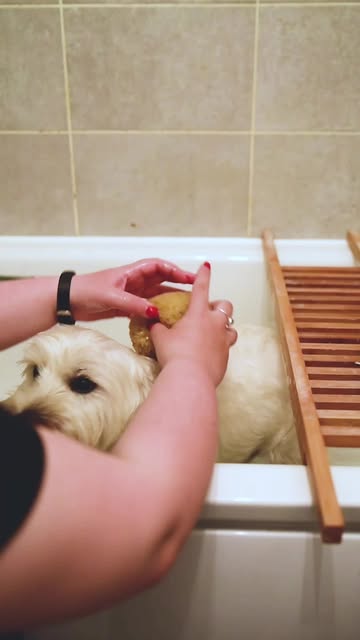
Credit: animology.co.uk
Diet And Nutrition
Your dog’s diet plays a surprising role in how they smell, even right after a bath. What your pet eats affects their skin health and the oils they produce, which can contribute to lingering odors. Paying attention to diet and nutrition can make a big difference in keeping your furry friend smelling fresh.
Protein Sources
Protein is essential for your dog’s skin and coat health. High-quality proteins from sources like chicken, fish, and lamb provide the building blocks for strong skin and a shiny coat. Poor-quality proteins or too many fillers can lead to skin issues and increase unpleasant smells.
Have you noticed if changing your dog’s food affects their odor? Some dogs react differently to certain protein sources, which can show up in their scent. Experimenting with limited ingredient diets might help identify if protein is the culprit behind the smell.
Balanced Diet
A balanced diet isn’t just about protein; it includes the right fats, vitamins, and minerals. Omega-3 and omega-6 fatty acids are key for healthy skin and can reduce inflammation that causes odor. Foods rich in antioxidants also support your dog’s immune system and keep their skin in good condition.
Think about the treats and table scraps you give your dog too. Unhealthy extras can throw off their nutrition balance and impact their natural scent. Could small changes in treats or supplements help your dog smell better after a bath?
Environmental Factors
Environmental factors play a big role in why your dog might smell even after a bath. Sometimes, the cause isn’t just about how you wash your dog but what happens around them afterward. Understanding these factors can help you keep your furry friend smelling fresh longer.
Humidity
High humidity can trap moisture in your dog’s coat, making it harder for them to dry completely. This dampness creates a perfect place for bacteria and yeast to grow, which leads to unpleasant odors. Have you noticed your dog smelling worse after a bath on a humid day?
Try drying your dog thoroughly with a towel and, if possible, use a pet-safe blow dryer on a low setting. Make sure the drying process is fast and complete to avoid that damp smell. If you live in a humid area, consider drying your dog indoors with a fan or air conditioner running.
Dirty Bedding
Your dog’s bed can be a hidden source of bad smells, even right after a bath. If the bedding is dirty or damp, it will quickly transfer odors back onto your dog. This is especially true if your dog likes to snuggle or roll around right after being cleaned.
Wash your dog’s bedding regularly using pet-friendly detergents. Replace any old or worn-out bedding that might be harboring bacteria or mildew. Have you checked your dog’s bed recently? It might be time for a deep clean or a fresh set of covers.
Grooming Techniques
Grooming your dog properly after a bath plays a huge role in preventing that unpleasant smell. Sometimes, it’s not the bath itself but the way you handle the drying and brushing that causes your dog to retain odors. Understanding and applying the right techniques can make a noticeable difference in keeping your dog fresh and clean.
Proper Drying
One of the biggest reasons dogs smell after a bath is because they stay damp for too long. Moisture trapped in their fur creates the perfect environment for bacteria and yeast to grow, leading to that musty smell.
Make sure you dry your dog thoroughly using a clean towel. If your dog tolerates it, a pet-safe blow dryer on a low, cool setting can speed up drying and prevent dampness.
Have you noticed how your dog’s ears or paws sometimes stay wet longer? Pay extra attention to those spots, as they are common trouble areas that can cause odor if not dried well.
Brushing
Brushing after a bath helps remove loose fur and spreads natural oils evenly, which can improve your dog’s coat and reduce odor. It also helps air circulate through the fur, aiding the drying process.
Use a brush that suits your dog’s coat type—slicker brushes for thick coats or bristle brushes for short fur. Regular brushing keeps the fur healthy and less prone to trapping dirt and bacteria.
Have you tried brushing your dog right after drying? It can make a big difference in how clean and fresh your dog smells throughout the week.
Underlying Health Issues
Sometimes, a bad smell after a bath signals health problems. Dogs can have hidden issues that cause odors. These problems need attention beyond just cleaning. Understanding these health issues can help keep your dog fresh and happy.
Ear Infections
Ear infections are common in dogs. They cause a strong, unpleasant odor. Moisture from baths can make infections worse. Signs include scratching, shaking the head, or redness. Treating ear infections requires vet care and medication. Cleaning ears gently helps prevent future infections.
Dental Problems
Bad breath may come from dental problems. Plaque and tartar build-up cause bacteria and smell. Gum disease or tooth decay also create odors. Regular teeth brushing and vet check-ups help maintain oral health. Addressing dental issues improves your dog’s overall smell and health.
Effective Solutions
Dealing with a lingering odor on your dog after a bath can be frustrating. Luckily, there are practical solutions that go beyond just scrubbing harder. These approaches help you keep your furry friend smelling fresh and comfortable without extra stress.
Natural Remedies
Sometimes, the best fixes come from simple, natural ingredients you might already have at home. Adding a bit of apple cider vinegar to the rinse water can balance your dog’s skin pH and reduce odor.
Baking soda is another powerful ally. Sprinkling a small amount on your dog’s coat before brushing can absorb excess oils and smells effectively.
Essential oils like lavender or chamomile, when diluted properly, can soothe your dog’s skin and leave a pleasant scent. Just be sure to check which oils are safe for dogs before using them.
Professional Grooming
Sometimes, the problem is deeper than a simple bath can fix. Professional groomers have tools and expertise to clean your dog thoroughly, especially if there’s trapped dirt or skin conditions causing the smell.
Regular visits to a groomer can prevent odor buildup by keeping your dog’s coat healthy and well-maintained. They also know how to choose the right shampoos for your dog’s specific skin type and needs.
Have you noticed that after a professional grooming session, your dog’s scent lasts much longer? That’s because groomers often use specialized deodorizing treatments that aren’t available at home.
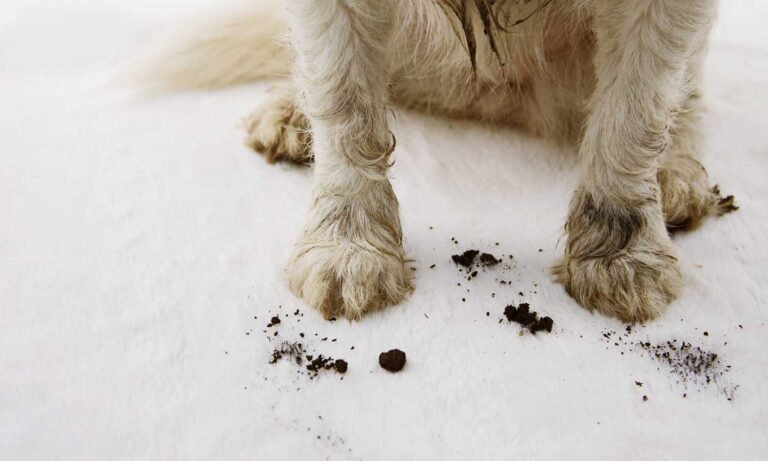
Credit: www.chewy.com
Frequently Asked Questions
Why Does My Dog Smell Bad After A Bath?
Your dog may smell after a bath due to trapped moisture. Wet fur creates a damp environment for bacteria and yeast. Using the wrong shampoo or not rinsing well can also cause odors. Proper drying and a dog-specific shampoo help prevent this smell.
Can Dog Shampoo Cause Bad Odor After Bathing?
Yes, some dog shampoos contain harsh chemicals or fragrances that may irritate the skin. This can lead to unpleasant odors. Always use a mild, hypoallergenic shampoo designed for dogs to maintain a fresh, clean smell after baths.
How Can I Prevent My Dog From Smelling Post-bath?
To prevent odor, thoroughly rinse all shampoo from your dog’s coat. Dry your dog completely using towels or a pet dryer. Regular grooming and ear cleaning also reduce bacteria buildup that causes bad smells.
Is Skin Infection A Reason For Post-bath Dog Smell?
Yes, skin infections or allergies can cause persistent bad odor even after a bath. If your dog’s smell doesn’t improve, check for redness, itching, or flakiness. Consult your vet for proper diagnosis and treatment to resolve odor issues.
Conclusion
Dogs can still smell after a bath for many reasons. Dirt or oils may stay in their fur. Skin infections or ear problems can cause odors too. Using the right shampoo and drying your dog well helps a lot. Regular grooming keeps your dog clean and fresh.
Pay attention to your dog’s health for any unusual smells. A clean dog feels happy and comfortable. Keep baths gentle and consistent for the best results. Simple care makes a big difference in your dog’s scent.


